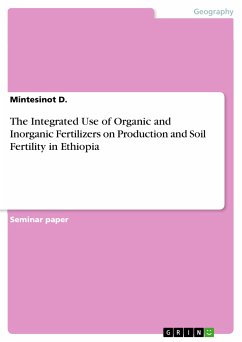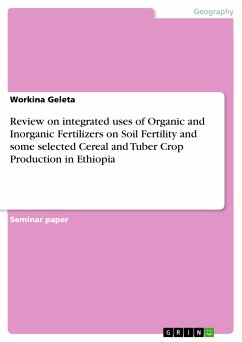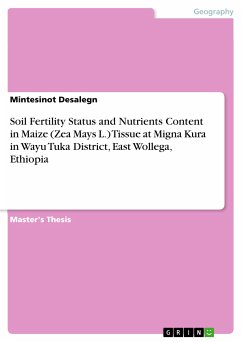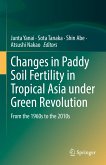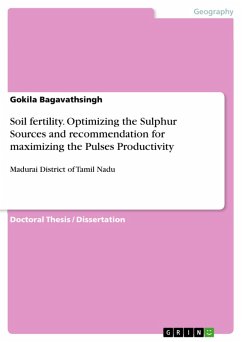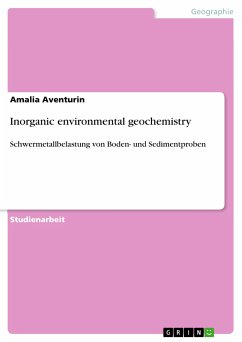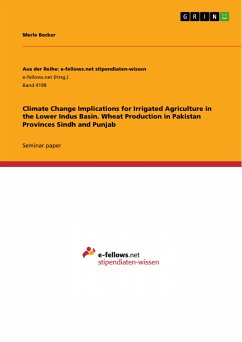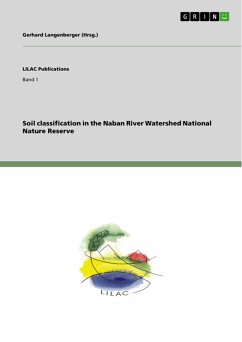Seminar paper from the year 2019 in the subject Geography / Earth Science - Geology, Mineralogy, Soil Science, grade: A-, , course: Graduate Seminar, language: English, abstract: Soil fertility decline is a big issue in the Agriculture of Ethiopia. The depletion of soil fertility is the main problem to sustain agricultural production and productivity in many countries. Soils in Ethiopian have low levels of plant nutrients due to their removal by erosion and leaching by high rainfall. One of the major constraints for crop production in Ethiopia is improper nutrient management. Organic fertilizer improves physical and biological activities of soil but they have comparatively low in nutrient content, so larger quantity is required for plant growth. However, inorganic fertilizer is usually immediately and fast containing all necessary nutrients that are directly accessible for plants, but the continuous use of inorganic fertilizers alone causes soil organic matter: degradation, soil acidity, and environmental pollution. So the integrated nutrient management system is an alternative system for the sustainable and cost-effective management of soil fertility by combined apply of inorganic with organic materials resulting in rising soil fertility and productivity without affecting the environment. In this review the improvement of soil fertility and crops production (Girma Chala and Gebreyes Gurmu, 2018) Conducted an experiment on Organic and Inorganic Fertilizer Application and its Effect on Yield of Wheat and Soil Chemical Properties of Nitisols the research finding output at Holetta Agricultural Research Center in 2014 to 2015 these results of soil analysis after harvesting revealed that application of organic fertilizer improved soil pH, OC, total N and available P, the highest wheat grain and biomass yield (6698 kg/ha and 19417 kg/ha respectively) were obtained from the application of 50% VC and 50% N and P followed by full dose of recommended rate N and P from inorganic fertilizer resulting in 6241 kg/ha grain and 18917 kg/ha biomass yields respectively. The objective of this review has assessed the effects of integrated organic and inorganic fertilizers on soil fertility and productivity. The study revealed that the appropriate application of organic with inorganic fertilizers increases productivity without negative effect on yield quality and improves soil fertility than the values obtained by organic or inorganic fertilizers separately.
Dieser Download kann aus rechtlichen Gründen nur mit Rechnungsadresse in A, B, BG, CY, CZ, D, DK, EW, E, FIN, F, GR, HR, H, IRL, I, LT, L, LR, M, NL, PL, P, R, S, SLO, SK ausgeliefert werden.

